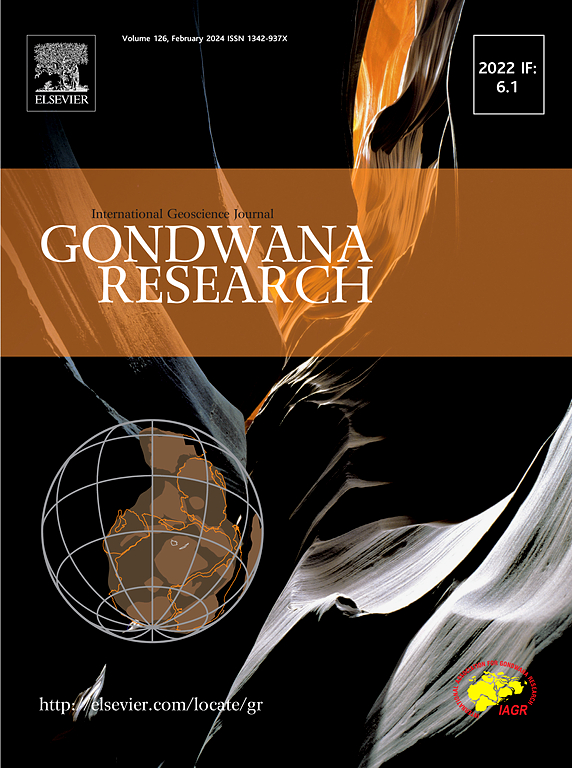Probing environmental sustainability aspects of resource efficiency, renewable energy usage and globalization
IF 7.2
1区 地球科学
Q1 GEOSCIENCES, MULTIDISCIPLINARY
引用次数: 0
Abstract
Given the pace of economic expansion arising from energy usage among other social and economic factors, emerging economies such as Turkey are increasingly becoming the focus for a net zero future. Therefore, the current attempt considers the drivers of environmental sustainability via load capacity factor (LCF) in the context of resource efficiency, renewable energy utilization, and globalization for Turkey over the period 1982 to 2019. By employing series of empirical tools that include cross-quantilogram method, quantile-on-quantile regression, quantile regression approaches, and the nonparametric quantile Granger causality approach, the result shows there is statistically significant evidence of quantile-to-quantile dependence among the trio of (resource efficiency, renewable energy utilization, and globalization) and LCF such that the dependence it reflects some levels of positive directional predictability, thus showing that these indicators are important drivers of environmental sustainability in Turkey. Furthermore, for the quantile-on-quantile regression results, there are statistically significant and positive effects of (i) resource efficiency on LCF across its conditional quantiles of distribution, (ii) renewable energy utilization on LCF and is mostly visible at the lower quantile up to the upper middle quantiles of renewable energy utilization (0.05–0.65), and (iii) globalization on LCF across the lower to upper middle quantiles. With the other empirical approaches providing similar results, the outcome of this investigation offers specific policy insight into resource circularity and energy efficiency.

探索环境可持续性方面的资源效率,可再生能源的使用和全球化
鉴于能源使用以及其他社会和经济因素带来的经济扩张速度,土耳其等新兴经济体正日益成为未来净零排放的焦点。因此,目前的尝试考虑了1982年至2019年期间土耳其在资源效率、可再生能源利用和全球化背景下,通过负荷能力因子(LCF)来实现环境可持续性的驱动因素。通过交叉量化图方法、分位数对分位数回归、分位数回归方法和非参数分位数格兰杰因果关系方法等一系列实证工具,结果表明,资源效率、可再生能源利用和全球化三者与LCF之间存在显著的分位数对分位数相关性,这种相关性在一定程度上反映了正向的可预测性。从而表明这些指标是土耳其环境可持续性的重要驱动因素。此外,对于分位数对分位数的回归结果,(i)资源效率对LCF的影响在其条件分布分位数上具有统计学意义和积极的影响,(ii)可再生能源利用对LCF的影响在可再生能源利用的下至中上分位数(0.05-0.65),以及(iii)全球化对LCF的影响在中下至中上分位数上最为明显。由于其他实证方法提供了类似的结果,本调查的结果为资源循环和能源效率提供了具体的政策见解。
本文章由计算机程序翻译,如有差异,请以英文原文为准。
求助全文
约1分钟内获得全文
求助全文
来源期刊

Gondwana Research
地学-地球科学综合
CiteScore
12.90
自引率
6.60%
发文量
298
审稿时长
65 days
期刊介绍:
Gondwana Research (GR) is an International Journal aimed to promote high quality research publications on all topics related to solid Earth, particularly with reference to the origin and evolution of continents, continental assemblies and their resources. GR is an "all earth science" journal with no restrictions on geological time, terrane or theme and covers a wide spectrum of topics in geosciences such as geology, geomorphology, palaeontology, structure, petrology, geochemistry, stable isotopes, geochronology, economic geology, exploration geology, engineering geology, geophysics, and environmental geology among other themes, and provides an appropriate forum to integrate studies from different disciplines and different terrains. In addition to regular articles and thematic issues, the journal invites high profile state-of-the-art reviews on thrust area topics for its column, ''GR FOCUS''. Focus articles include short biographies and photographs of the authors. Short articles (within ten printed pages) for rapid publication reporting important discoveries or innovative models of global interest will be considered under the category ''GR LETTERS''.
 求助内容:
求助内容: 应助结果提醒方式:
应助结果提醒方式:


